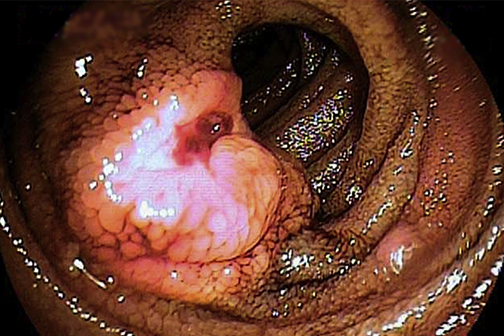LSU Health New Orleans Reports Innovations in Defining Sources of GI Bleeding
A team of physicians at LSU Health New Orleans has found that endoscopy combined with the administration of antiplatelet or anticoagulant agents is a safe and effective technique for identifying hidden sources of gastrointestinal bleeding. The work is published online in Gastrointestinal Endoscopy (GIE) and reviewed in New England Journal of Medicine Journal Watch in October 2016.
“This is the first case series to evaluate the benefit and safety of provocative testing combined with endoscopy to be reported in the literature,” notes Dr. Daniel Raines, Chief of the Section of Gastroenterology at LSU Health New Orleans School of Medicine, and lead author of the paper.
According to the Agency for Healthcare Research and Quality, GI bleeding results in more than 500,000 hospitalizations each year. In some cases, the source cannot be defined despite exhaustive testing resulting in the need for repeated transfusions, repeated hospitalizations and sometimes death.
The LSU Health New Orleans team developed a novel technique to find the leak --giving these patients blood thinners to stimulate or provoke bleeding before endoscopy because some sources are only visible when actively bleeding.

Other members of the team included Dr. Kellen Jex and Mark Nicaud at LSU Health New Orleans and Dr. Douglas Adler at the University of Utah.
